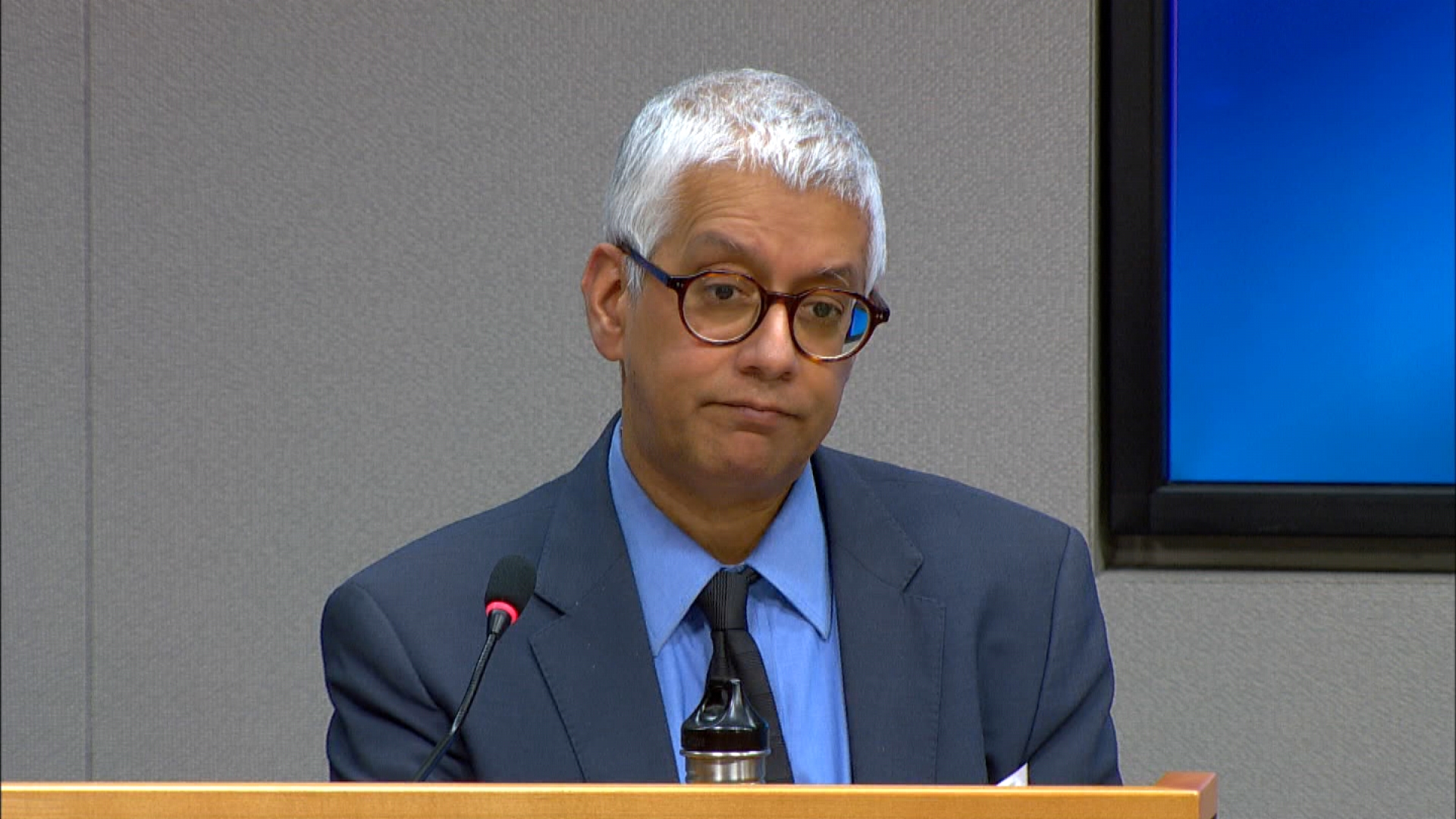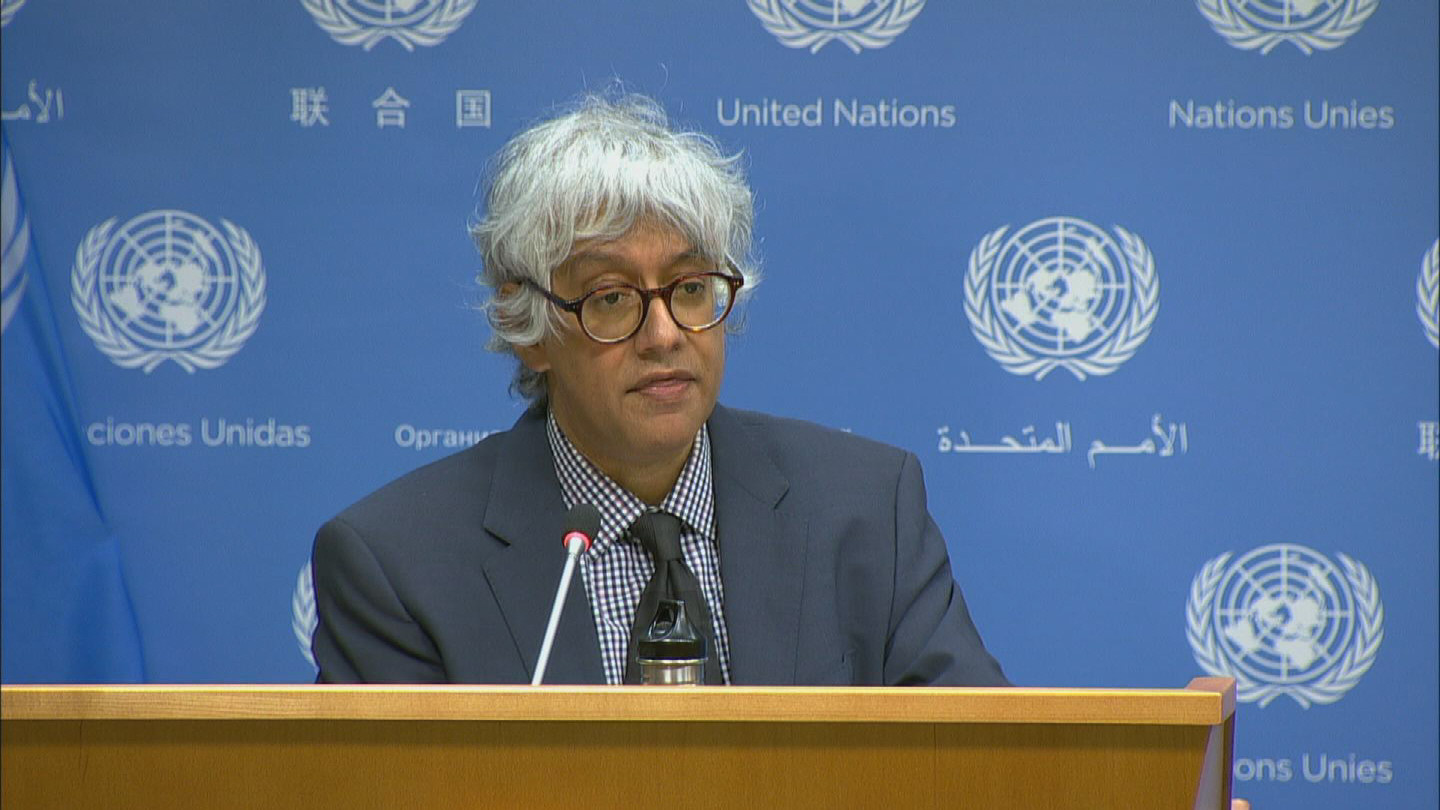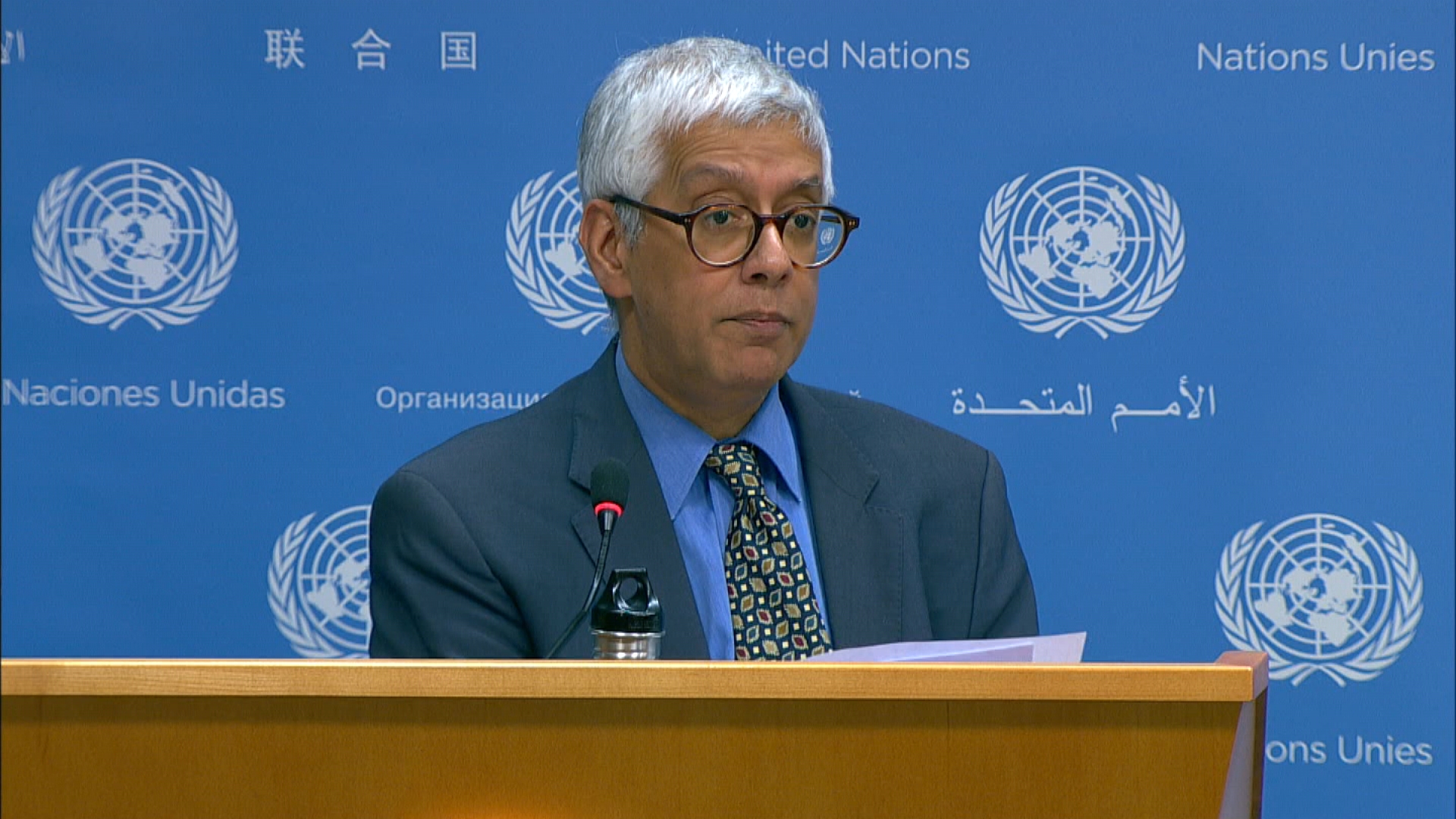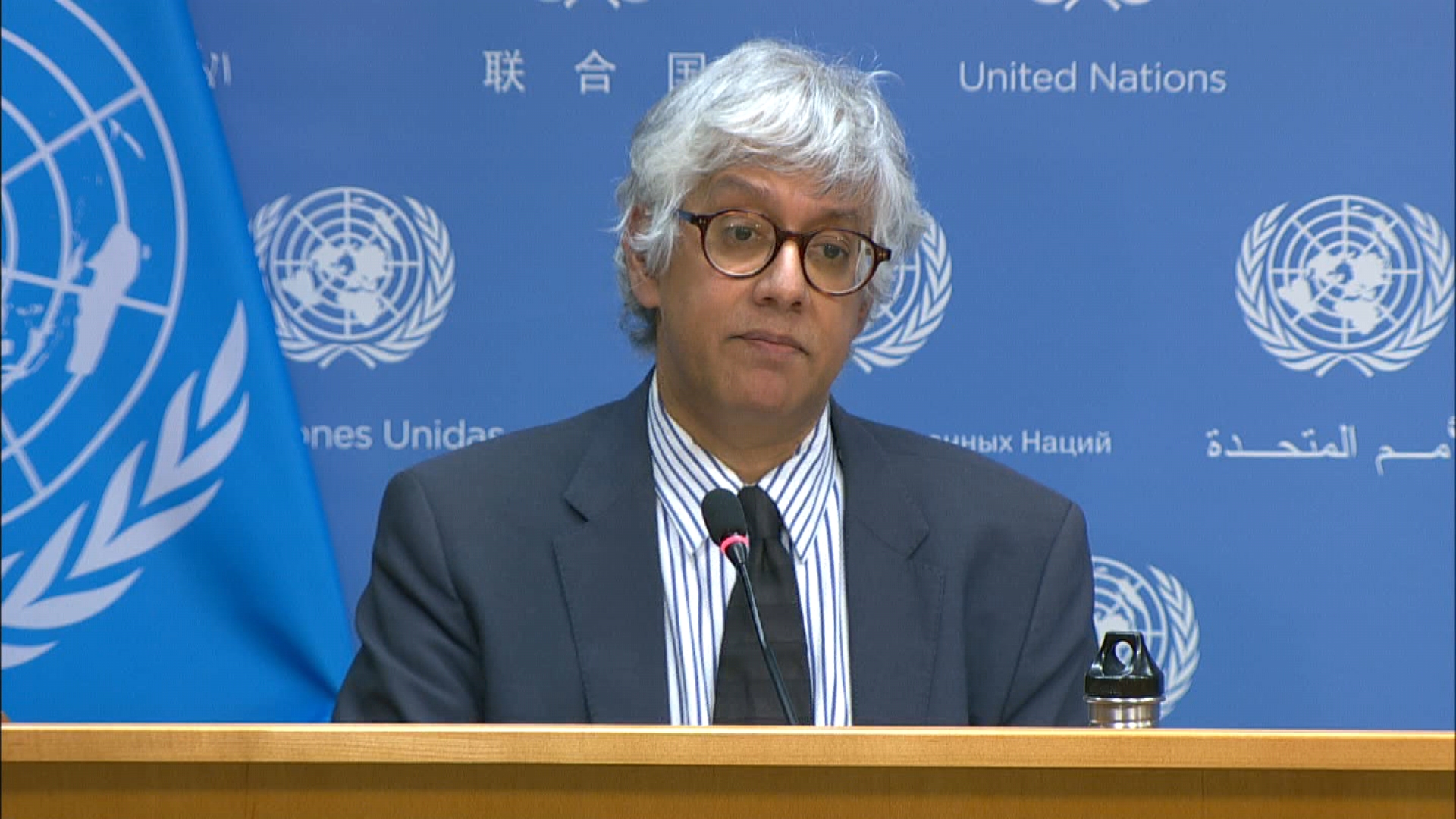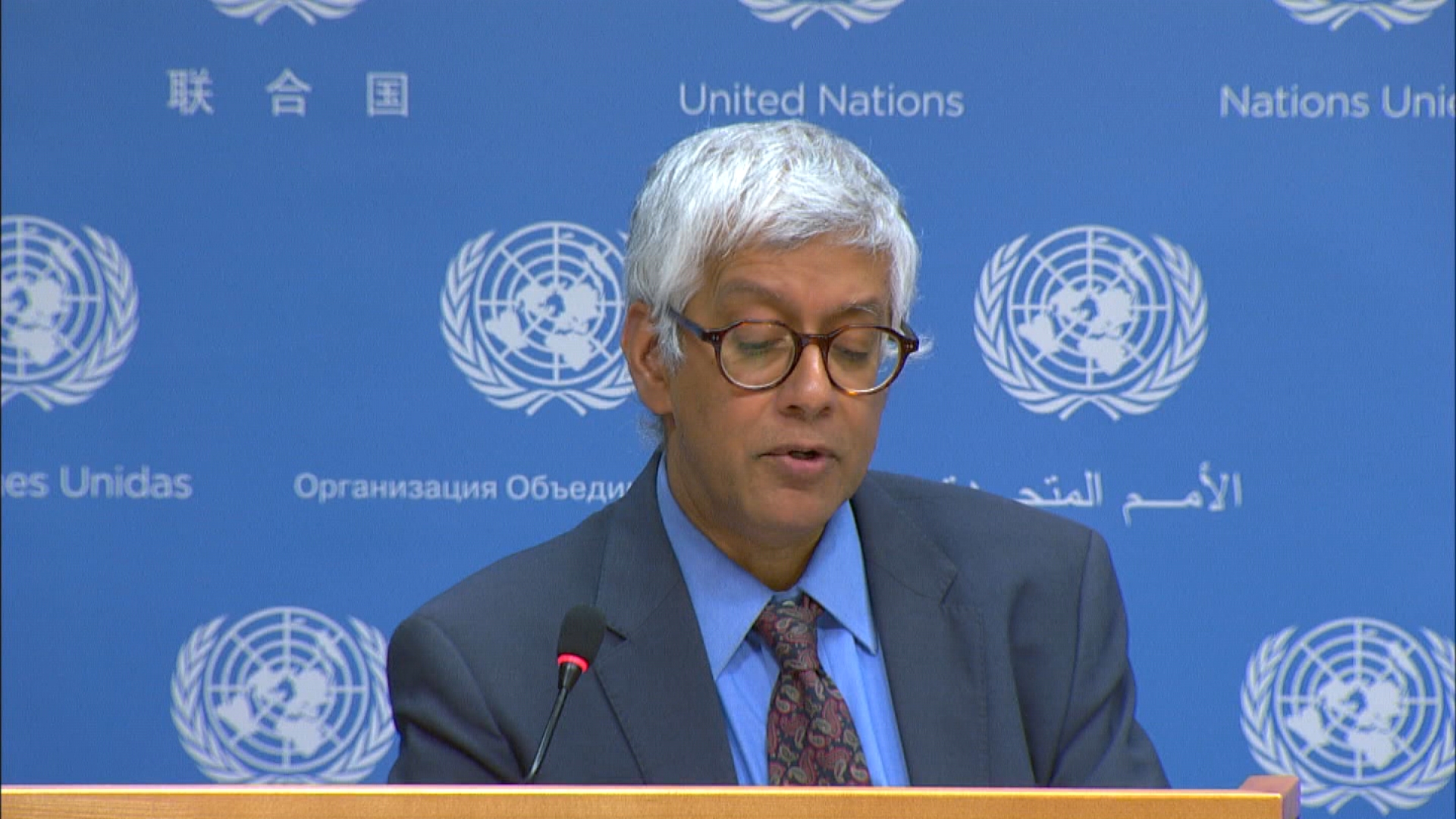Press Conferences
Briefing by Spokesperson for Secretary-General
The Secretary-General is on his way back from Addis Ababa, where he attended the 30th Assembly of the African Union.
On Saturday, he began the day with a bilateral meeting with the Chairperson of the African Union Commission, Moussa Faki Mahamat. They signed a Framework for the implementation of the Agenda 2063 and the 2030 Agenda for Sustainable Development, which underscores the overriding priority for both organizations to eradicate poverty. Speaking to the press after the meeting, the Secretary-General said that the partnership with the African Union was a strategic choice for the UN and that the UN stands with the African Union and recognizes its leadership as it tackles African problems.
The Secretary-General then joined the leaders of the African Union and the Intergovernmental Authority on Development for a consultative meeting on the situation in South Sudan.
Later in the afternoon, he attended an event entitled “Renewed Partnership to end hunger in Africa by 2025 - Five Years Later”. The Secretary-General told participants that stronger commitments by governments, the African Union and the UN were needed to promote peace, human rights and sustainable development, which are also key instruments to fight hunger.
The Secretary-General then attended a special meeting of the African Union Peace and Security Council to examine a comprehensive approach to combating the transnational threat of terrorism in Africa.
During the day, he also met with a number of Heads of State and Government and Foreign Ministers, including those from Ethiopia, Angola, Libya, Kenya, Uganda, Rwanda and South Sudan.
On Sunday, the Secretary-General attended a working breakfast on the theme of “Equal Access of African Women in High Level Positions at the African Union and in the United Nations System.”
He then joined the AU Heads of State and Governments for the opening ceremony of the 30th Ordinary Session of the Assembly of the African Union. In his remarks, the Secretary-General reaffirmed the UN’s strong commitment to the Member States and people of Africa. He thanked African governments for leading the way in contributing troops and police to help save lives and keep the peace around the world. He also stressed the need to harness the demographic dividend, through investment in quality education, skills and job creation, to unleash unprecedented resources of energy, talent and creativity.
The Secretary-General then spoke to the press. He stressed the need for a redesign of peacekeeping forces, and for them to be better equipped, better prepared, better led, more able to protect populations and themselves, but also to have adequate mandates and political and financial support. He also stressed the need for adequate support to African forces in peace enforcement and in counterterrorism operations, with strong mandates from the UN Security Council and predictable funding.
Prior to leaving Addis Ababa, the Secretary-General attended an event on strengthening humanitarian and development collaboration.
Throughout the day, he also had bilateral meetings with leaders from Guinea, Somalia, Liberia, Central African Republic, and South Africa.
And also in Addis Ababa, the Emergency Relief Coordinator, Mark Lowcock, yesterday released US$10 million from the Central Emergency Response Fund to urgently help the most vulnerable people displaced by the conflict along the borders of the Oromia and Somali regions in Ethiopia, as well vulnerable people in the host communities.
Staffan de Mistura, the Special Envoy for Syria, has arrived in Sochi, where he was sent by the Secretary-General to attend the Congress of the Syrian National Dialogue, is taking place today and tomorrow.
In a statement issued over the weekend, the Secretary-General expressed confidence that the Congress in Sochi will be an important contribution to a revived intra-Syrian talks process under the auspices of the United Nations in Geneva, based on the full implementation of the Geneva Communiqué (2012) and Security Council resolution 2254 (2015).
Meanwhile, the UN Refugee Agency (UNHCR) noted that its Special Envoy, Angelina Jolie, said on Sunday that any negotiated solution to Syria’s long-running conflict must respect the human rights and dignity of all Syrians, including millions of refugees living in neighbouring countries. UNHCR has details of Ms. Jolie’s visit to the Za’atari Refugee Camp in Jordan online.
This morning, the Deputy Secretary-General spoke at the opening of the 56th session of the Commission for Social Development. She said the Commission has a key role to play in addressing the challenges of eradicating poverty, reducing inequality, and protecting the environment, which are also at the heart of the 2030 Agenda. She also encouraged the Commission to emphasize the need to accelerate inclusive and equitable economic growth and sustainable development, including full, productive employment and decent work for all.
Over the weekend a statement was issued on Afghanistan in which the Secretary-General strongly condemned the deadly attack in central Kabul. He stressed that indiscriminate attacks against civilians are grave violations of human rights and international humanitarian law and can never be justified. The Secretary-General extended his deepest condolences to the families of the victims and wished a speedy recovery to those injured.
The spokesman also extended these sentiments to the victims of the attack at a military academy in the capital this morning, which killed at least 11 soldiers.
The Secretary-General also condemned the killing of a peacekeeper from Pakistan deployed with the UN Mission in the Democratic Republic of the Congo (MONUSCO) following an ambush by an armed group in South Kivu Province.
At least one other peacekeeper was wounded in the attack.
The Secretary-General extended his heartfelt condolences to the family of the deceased and to the people and government of Pakistan.
The UN condemned the attack in Ecuador against a police command centre in the district of San Lorenzo this Saturday.
The UN Country Team expressed its solidarity with the people and Government of Ecuador, especially with the people who were injured in the explosion.
The World Health Organization’s first release of surveillance data on antibiotic resistance reveals high levels of resistance to a number of serious bacterial infections in both high- and low-income countries.
According to the director of WHO’s Antimicrobial Resistance Secretariat, Dr Marc Sprenger, the new report confirms the serious situation of antibiotic resistance worldwide.
Some of the world’s most common – and potentially most dangerous – infections are proving drug-resistant.
WHO is encouraging all countries to set up good surveillance systems for detecting drug resistance that can provide data to this global system. To date, 52 countries are enrolled in WHO’s Global Antimicrobial Surveillance System – or GLASS.
Solid drug resistance surveillance programmes in TB, HIV and malaria have been functioning for many years. GLASS is expected to perform a similar function for common bacterial pathogens.
The Marshall Islands and the Philippines paid their regular budget dues in full for 2018. This brings the Honour Roll total to 25.
